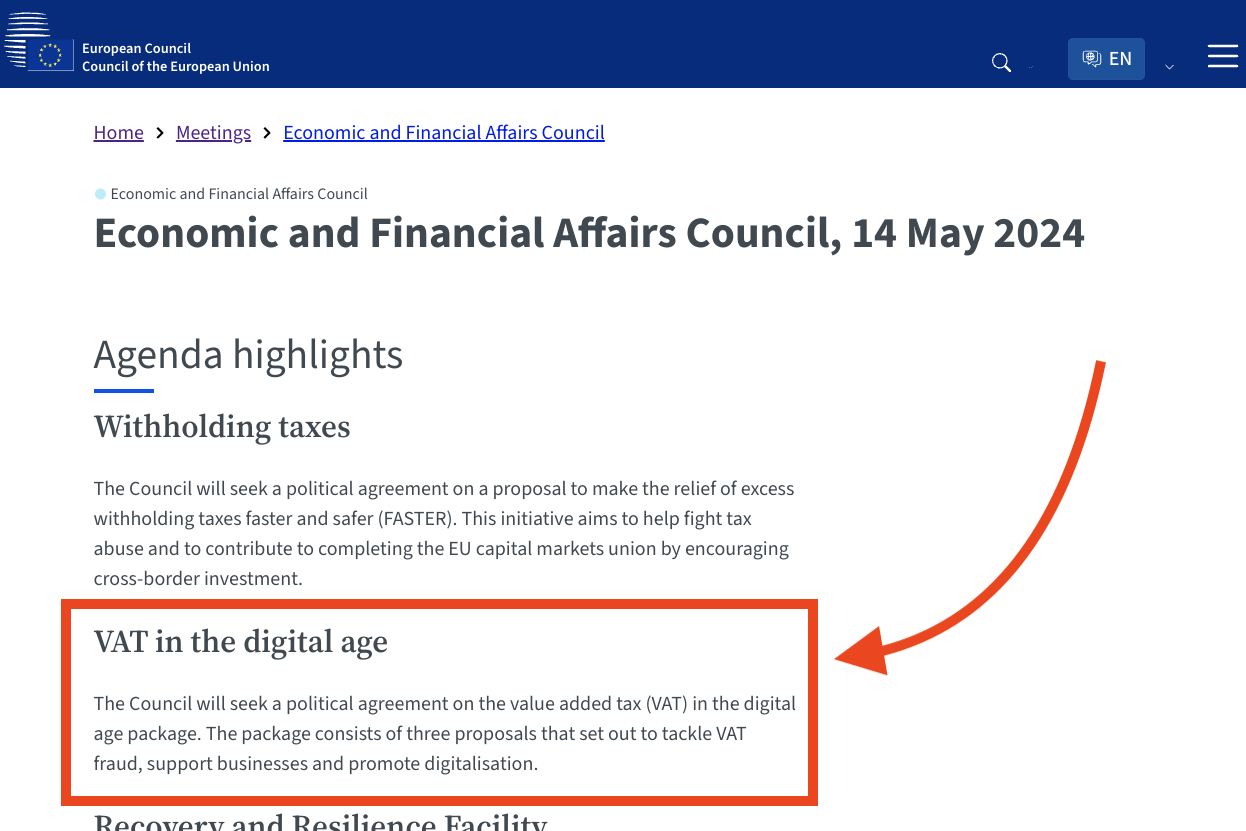Under the Belgian presidency, the European Council renewed its focus on promoting digitalization in the European Union. The Agenda for the next meeting on 14.5.2024 of the Economic and Financial Affairs Council prominently features the objective to seek political agreement on the VAT in the Digital Age (ViDA) package.
In preparation, a Draft Council Directive amending Directive 2006/11/EC was published on 8.5.2024 on the Documents&Publications register of the European Council as an Interinstitutional File “ST 9681 2924 INIT – NOTE”: Draft Council Directive amending Directive 2006/112/EC as regards VAT rules for the digital age – General approach . Much work has gone into refining the original proposal and the publication of updated texts following political agreement is bound to further shape the landscape of e-Invoicing and more broadly digitalization across Europe.
Originally, the European Commission proposed the package on December 8th, 2022 with measures spanning 3 pillars:
- Digital Reporting Requirements (DRR) to introduce (near) real-time VAT reporting across the EU, at least for cross-border transactions
- Updated VAT rules for economic platform operators in passenger transport and short-term accommodation industries
- Single VAT registration across the EU
The updated proposal:
- Upholds the requirements to report cross-border transaction data electronically and uniformly while allowing more flexibility for domestic invoicing
- Still requires acceptance of EN16931-compliant invoices for cross-border and domestic transactions while allowing more freedom for domestic standards
- Members states may impose electronic invoicing as a prerequisite to allow deduction (or claiming) VAT due (or paid)
- VAT reporting is required at most 10 days after the chargeable event
- Defines a timeline between 1.1.2026 and 1.7.2030 for national transposition and taking effect
- Allows existing (on 1.1.2024) national public systems until 1.1.2035 to align to the updated ViDA Directive
Stay tuned for further updates and analysis next week!





No comment yet, add your voice below!